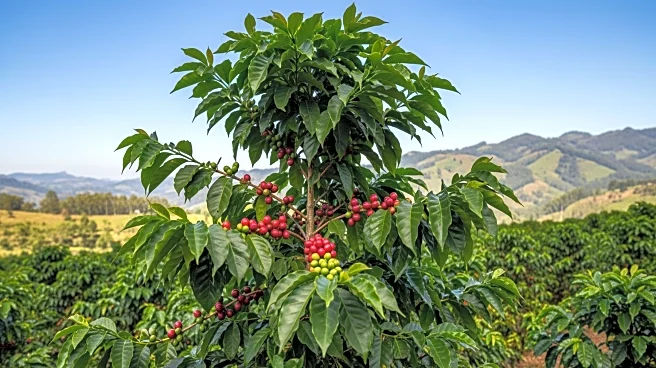What's Happening?
In Sultan Kudarat, regenerative farming practices are transforming the local coffee industry, significantly increasing yields and farmer incomes. Edwin Batilo, a coffee farmer, has seen his harvest more
than double due to these practices, which focus on soil health and biodiversity. The Coffee++ program, initiated by Nestlé Philippines and the German Agency for International Cooperation, has benefited over 3,000 farmers by teaching sustainable farming methods. This initiative has led to a 45.5% increase in farmer income and a 9.54% improvement in farm productivity from 2017 to 2024.
Why It's Important?
The adoption of regenerative farming practices in Sultan Kudarat is crucial for the sustainability and growth of the coffee industry in the Philippines. By improving soil health and reducing reliance on chemical fertilizers, these practices enhance productivity and environmental sustainability. The economic empowerment of local farmers through increased yields and income can lead to broader socio-economic benefits, including poverty reduction and community development. As coffee consumption in the Philippines rises, these practices could help meet growing demand and reduce dependence on imports.
What's Next?
Sultan Kudarat aims to become a coffee export powerhouse, leveraging its improved production capabilities and international recognition. The Department of Agriculture plans to invest P700 million to boost local coffee production, which could further enhance the industry's growth. Continued support for regenerative farming practices and infrastructure development will be essential to sustain this momentum and achieve export goals. The success of these initiatives could serve as a model for other regions seeking to enhance agricultural productivity and sustainability.










